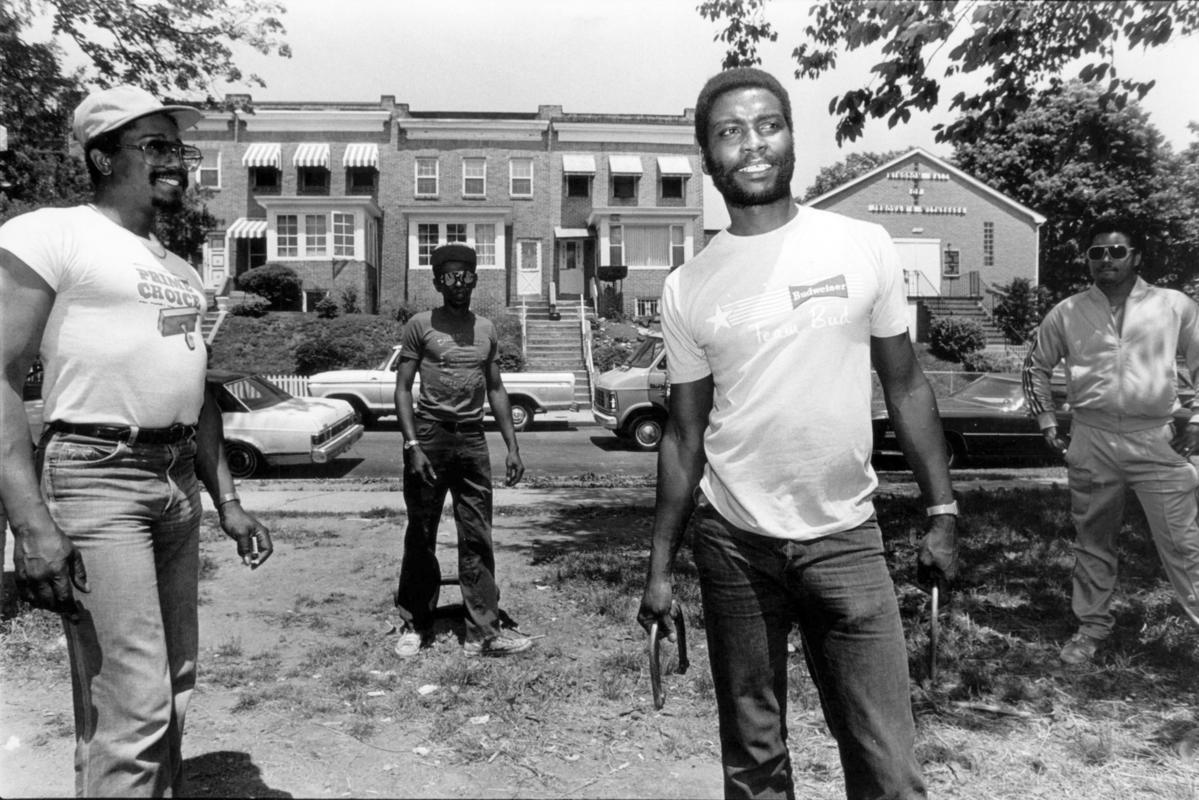Kenneth Jones, who lost his job with Amtrakm, is looking for work. He plays horseshoes in the neighborhood with the neighborhood guys to pass the afternoon in Baltimore. (Iris Schneider / Los Angeles Times). Featured Image
[dropcap]From[/dropcap] each paycheck, $33 goes to the doctor who set baby Reneesha’s broken arm after she flipped off the bed. The rest of the money spreads thinly across too many bills. Dinners have sometimes been no more than mayonnaise sandwiches. [mc4wp_form id=”6042″]
 Ola Reynolds in Brunswick, Ga. She has just left her husband, who was physically abusing her over the years of their marriage. She recently moved into this house in Brunsiwick and has a job at a seafood packing factory. Image Credit. Iris Schneider / Los Angeles Times.
Ola Reynolds in Brunswick, Ga. She has just left her husband, who was physically abusing her over the years of their marriage. She recently moved into this house in Brunsiwick and has a job at a seafood packing factory. Image Credit. Iris Schneider / Los Angeles Times.“Better I’d never met Ray,” Ola said.
Another is Kenneth Jones of Baltimore, whose first inkling of money trouble came as a rumor around the office: “Reduction in forces, people called it.”
A father of four, he had always tried to make the right moves. He went to college and studied accounting, but at graduation he landed no job. Too inexperienced, employers said.
Then a friend told him they were hiring at Amtrak. It was not college man’s work, but it paid all right, $5.60 an hour.
Started as trackman
Kenneth started as a trackman, replacing heavy wooden ties. Then he was a machinist, and then the company let him bid on an office job. In time, he was making $29,500 a year, writing reports that went all the way to Congress. Finding his way to Amtrak seemed a flash of luck.
But he has not worked since the layoff 15 months ago and, at age 33, his pride is papered over with welfare checks and food stamps. There is a leak in the dining room ceiling that he cannot afford to fix. The children’s aquarium is down to a single fish.


You must be logged in to post a comment.